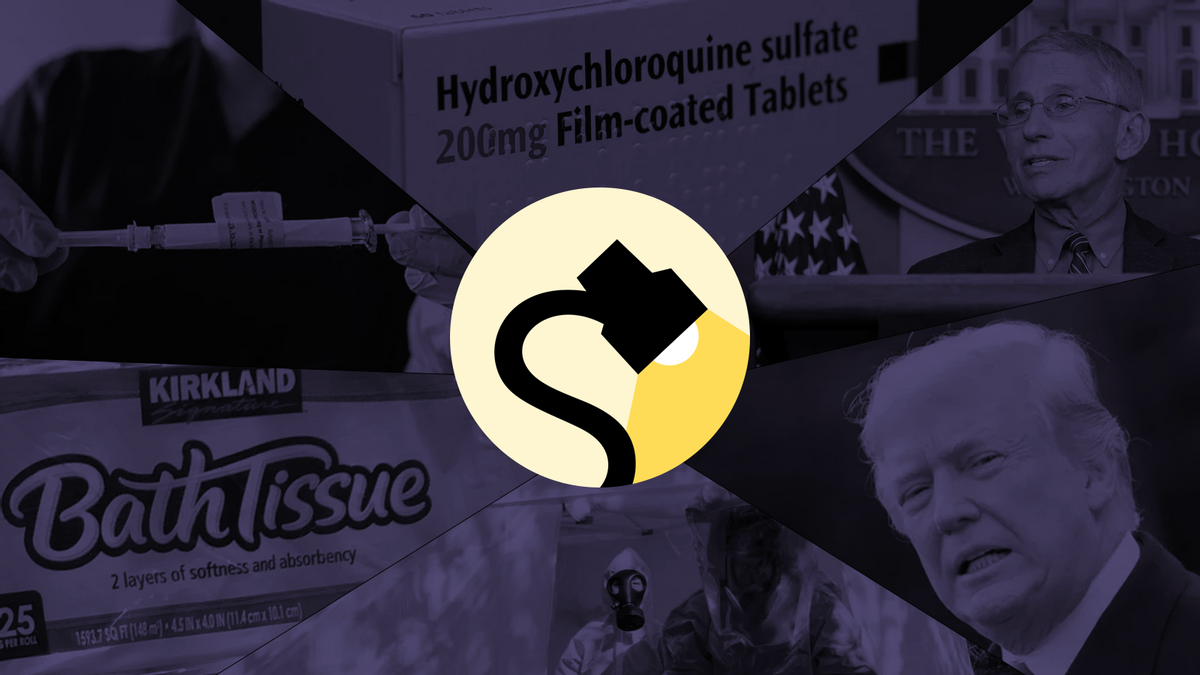A Turning Point in Online Misinformation | The Pandemic, in Fact Checks | How to Inoculate Yourself Against Misinformation | The Pandemic, in Questions | How We Can Help Each Other
For more than a year, we've been experiencing two pandemics — COVID-19, the disease ravaging the world, and the infodemic of rumors, hoaxes, and malicious disinformation surrounding it.
Snopes has been at the center of the latter. Desperate for information about a terrifying, deadly plague, readers grabbed any information they could and asked us to investigate. And we did.
One year on, we're ready to share what we've learned about the infodemic — the year misinformation swallowed the world.
A Turning Point in Online Misinformation
By David Mikkelson
As Americans took in the shock and horror of the terrorist attacks that destroyed the World Trade Center on Sept. 11, 2001, some of them took to the internet (then still a new phenomenon to many people) to express one of the most common emotions people feel in such moments: a desire to exert some feeling of control over a world seemingly gone mad.
In the wake of the attacks, users forwarded viral emails proclaiming that Nostradamus had prophesied the attack (it was predictable!), warnings of future attacks (we can head them off!), exhortations to boycotts companies in which Osama bin Laden owned an interest (defund the terrorists!), and conspiracy theories positing that everyone from Israel to President George W. Bush was actually behind the attacks (we know who *really* did it!). All of these rumors provided readers with some sense of control in the chaotic aftermath of 9/11 ... and all of them were 100% false.
The attacks were a turning point in the history of Snopes.com. Online fact-checking wasn't yet a thing, and the traditional news media hadn't begun paying much attention to the internet as a phenomenon unto itself — leaving us virtually alone as the one outfit dedicated to cataloging and investigating the myriad of rumors swirling around cyberspace about the devastating event. Millions of readers in the U.S. and elsewhere began turning to us for reassurance and enlightenment at a time when it was difficult to know what to believe or do.
We saw a similar cycle of (mis)information overload play out as the COVID-19 pandemic developed in early 2020. Social media users shared messages and memes holding that the coronavirus disease was a hoax, conspiracy theories asserting it was deliberately created (by China, or Dr. Anthony Fauci, or Bill Gates), promotions of dubious and unproven cures, and claims that face masks were unhelpful in preventing spread of the disease or even harmful to wearers.
Human nature may not have changed much in the 20 years between 9/11 and COVID-19, but the online information landscape certainly did. In 2001, much errant information was spread by well-meaning but misinformed members of the public; by 2020, foreign actors seeking to disrupt other countries, profiteers, and political partisans were all part of the mix of those who had vested interests in promoting COVID-related disinformation. However, although in 2001 few online resources (outside of Snopes.com) existed to combat this onslaught of "fake news," by two decades later many more entities had sprung up to help wage the battle.
While we're grateful for the help, we'll still be here for you, fighting the good fight.
The Pandemic, in Fact Checks
By Jessica Lee
https://cdn.knightlab.com/libs/timeline3/latest/embed/index.html?source=1AaGeMmi3ZMCEWSMna-mfNZDcAIh7E2IYQHdKnXsFOIY&font=Default&lang=en&initial_zoom=2&height=650
Back to top
How to Inoculate Yourself Against Misinformation
By Dan Evon
While the Snopes team will always be here to help you sort fact from fiction, it's always helpful to have a few tips to sort out some obvious misinformation for yourself. Here are a few tips to sort out rumors:
- Don’t mistake anecdotes for evidence. Anti-Vax arguments often hinge on anecdotes. While these stories may be true, they often represent outliers to the scientific data.
- Be wary of emotional posts. Viral misinformation is often designed to get an emotional reaction from the viewer. Be on alert for emotional language in posts.
- Reading headlines is not enough. Headlines often give readers an intriguing (but not necessarily honest) glimpse of a news item. Make sure to read the article to see if the headline matches with the reporting.
- Trace your info back to its source. Where is this information coming from? If you see something you’re unsure of, see if you can trace this information back to a reputable source.
- Keep yourself up to date. Advice for dealing with the COVID-19 pandemic has changed a few times over the last year as health experts learn more about the virus. Keep an eye on the CDC or WHO for the latest, most up-to-date info.
The Pandemic, in Questions
At Snopes, we rely on questions submitted by our readers to determine what to cover. In mid-March 2020, we suddenly received a deluge of questions about COVID-19. We marked them in our system to keep track of pandemic-related queries — and, when viewed as a whole, they reveal the shape of the infodemic.
How We Can Help Each Other
Vaccine distribution may mean that the end of the COVID-19 pandemic is in sight, but the infodemic rages on. Misinformation about vaccines, the virus' origins, and the deadliness of the disease continue to flourish online, but Team Snopes will be here to check it.
Here's how we can fight the infodemic together:
- If you see something online that gives you pause, send it to the Snopes suggestion box.
- Share our fact checks to help debunk misinformation. We include our sources in every fact check, so you know exactly where we're getting our information from.
- If you've used our fact checks this year, please consider making a contribution or becoming a Founding Member. We're a very small team, and every little bit helps.
COVID-19 will go away some day — but the infodemic is here to stay. And so are we.
